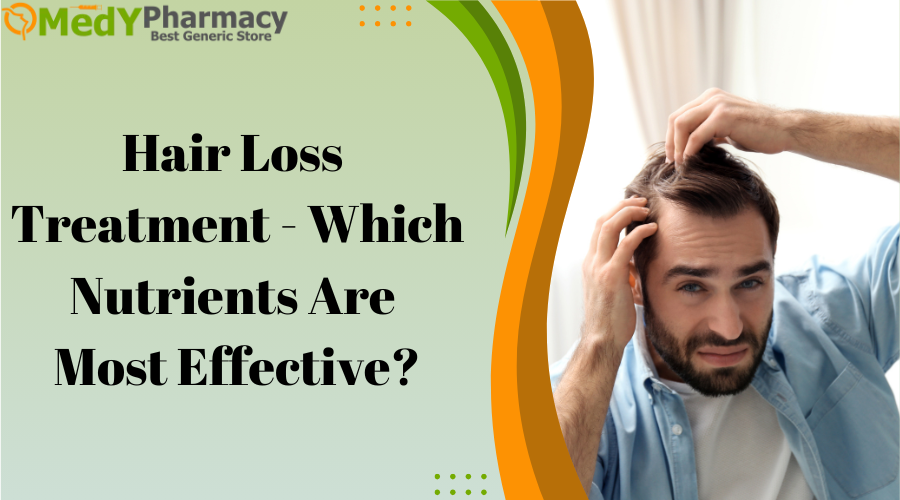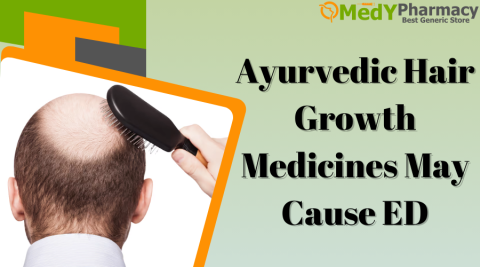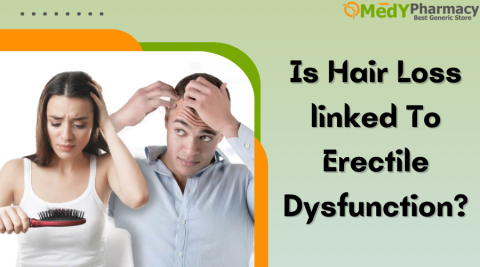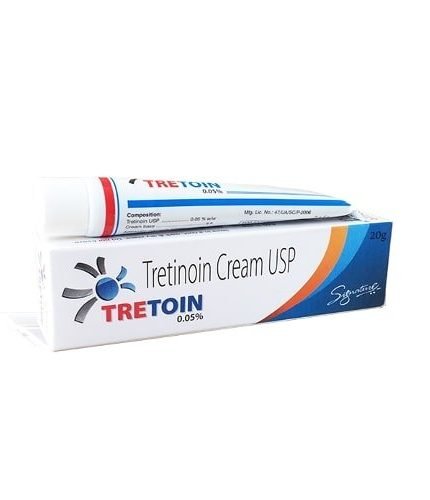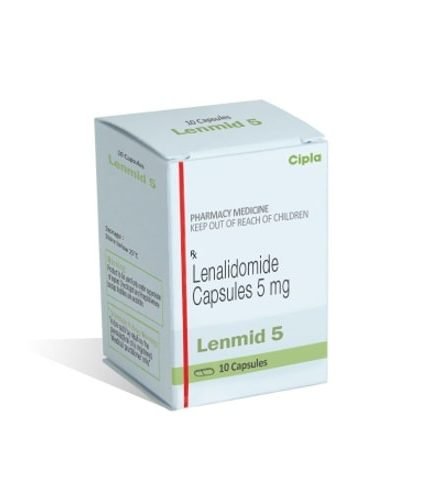Introduction:
Hair loss is a prevalent issue for people of all ages and genders. While numerous variables contribute to hair loss, nutrition, and long-term care are two important considerations that are frequently overlooked.
In this comprehensive guide, we’ll look at how proper nutrition and long-term hair care can help treat and prevent hair loss. We’ll talk about the necessity of a well-balanced diet, specific nutrients that encourage hair growth, and practical long-term maintenance methods for healthy hair.
This is a frequent problem, affecting almost 80% of men and half of all women throughout their lives.
Although nutritional supplements are frequently used for addressing hair loss, there is minimal data on their usefulness and safety.
According to a comprehensive assessment of data from 30 earlier human research, nutritional supplements may be able to treat specific types of hair loss with typically manageable side effects.
The authors emphasized that these studies had small participants and a variable design, indicating the necessity for bigger randomized clinical trials.
Understanding the Causes of Hair Loss
Understanding the reasons for this is critical before learning how to stop it. Unbalanced hormones, such as those caused by thyroid disorders, can also lead to hair loss.
The hair may grow weak and fall out if essential nutrients are not ingested appropriately. Alopecia and scalp infections are medical diseases that can result in or prevent hair loss. Excessive heat style, harsh chemicals, and harmful styling techniques can all cause hair loss.
Understanding the underlying cause of this is critical for determining the most effective preventative treatments and encouraging new hair growth. Individuals can avoid hair loss and encourage healthy hair development by addressing the root reasons and taking suitable steps.
Before diving into nutrition and long-term care, we must first understand the causes and symptoms of hair loss. Genetics, hormonal imbalances, drugs, and underlying health disorders can all cause hair loss. However, nutrition also plays an important part in maintaining healthy, vivid hair.
Use of Nutritional Supplements
In most cases, treating hair loss entails addressing the underlying cause, such as a nutritional deficiency or disease. FDA-approved therapies for androgenetic alopecia include oral finasteride and topical minoxidil.
Because of the potentially harmful effects of finasteride in females, only minoxidil is utilized to treat androgenetic alopecia.
However, both medicines are accompanied by side effects that may necessitate their withdrawal. Finasteride, in particular, can induce male sexual dysfunction, whilst minoxidil is linked to dermatitis.
More recently, the FDA approved baricitinib, an immune-modulating medication, for the treatment of severe alopecia aerate.
Given the potential adverse effects of pharmacological treatments, there has been a growing interest in alternative remedies for hair loss, such as nutritional supplements.
A recent survey of patients at a hair loss clinic found that over 80% used nutritional supplements. However, there is minimal evidence of the safety and usefulness of these supplements.
They omitted trials that involved hair loss caused by nutritional deficiencies, pharmaceutical usage, trauma, or physical stress.
The researchers also classified the studies based on the quality of evidence, with randomized clinical trials providing the most evidence in the review.
Vitamins and Antioxidants
According to studies, several kinds of hair loss, such as alopecia areata, androgenetic alopecia, and telogen effluvium, are linked to oxidative stress and a lack of micronutrients like vitamins.
While the analysis revealed some high-quality evidence indicating zinc could improve hair development in those with hair loss, evidence supporting the involvement of vitamin D and vitamin B12 in hair loss treatment was of lower quality.
Although biotin is a prominent element in hair loss treatments, there has been a lack of research into its efficacy as a solo treatment.
However, randomized clinical trials suggest that tocotrienols, antioxidant compounds in the vitamin E family, as well as a combination of fish oil, blackcurrant seed oil, and antioxidants such as vitamin E and lycopene, could improve hair density in people who are losing hair.
Zinc contributes to hair tissue growth and repair. Foods high in zinc include oysters, whole grains, and nuts.
Vitamins A and C Both of these vitamins are required for the creation of sebum, a natural hair conditioner. Include sweet potatoes (high in vitamin A) and citrus fruits (high in vitamin C).
Selenium enhances scalp health and is present in Brazil nuts and whole wheat bread. Fincar 5 mg can help treat benign prostatic hyperplasia (BPH) and male pattern baldness while still preserving your hair.
This is made up of proteins. A diet high in lean meats, poultry, fish, and plant-based protein sources like beans and lentils can supply the amino acids required for hair development.
Biotin, sometimes called vitamin H, is required for healthy hair. It can be found in foods such as eggs, almonds, and whole grains. Biotin supplements are now available to those who are deficient.
Iron deficiency can result in hair loss. To maintain hair health, include iron-rich foods in your diet, such as spinach, lean red meat, and fortified cereals.
The Mediterranean Diet and Hair Health
It is frequently stated that the Mediterranean diet can bring several health benefits to both the body and the hair, as well as have a beneficial impact on both. Your hair will thrive if you consume a diet rich in fruits, vegetables, whole grains, olive oil, and lean protein sources, all of which are high in critical nutrients. Dutasteride 0.5 mg, which is known for treating enlarged prostates and preventing hair loss, provides men with a twofold advantage.
Hydration and Hair
Staying hydrated is an extremely vital aspect of hair health. To keep your hair hydrated from within, drink plenty of water every day. Dehydration can cause your hair to dry out, frizz, and break. Finpecia 1 mg is an inexpensive and convenient treatment option for male pattern baldness.
Hair Nutrition Supplements
Some people may benefit from nutritional supplements aimed at promoting hair health and a well-balanced diet. In addition to a nutritious diet, a supplement containing biotin, folic acid, and other vitamins and minerals can help increase the quality and development of your hair.
However, it is critical to talk with a healthcare practitioner before adding any supplements to your routine, since excessive use might have negative consequences. Taking Finast 5 Mg can help men regrow a full head of hair by suppressing the hormone that causes male baldness.
Regular Exercise for Proper Hair Growth
Exercise promotes healthy hair while also benefiting your overall health. It improves blood circulation, which helps to provide important nutrients to your hair follicles. Exercise can also help to reduce stress, which has been shown to speed up hair loss.
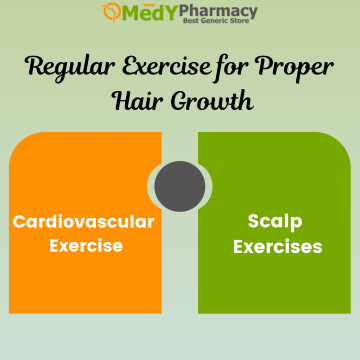
- Cardiovascular Exercise
Running, swimming, and cycling can all help to promote hair development. These aerobic workouts stimulate blood flow and oxygen delivery to the scalp, creating a favorable environment for hair development.
- Scalp Exercises
Massage your scalp gently to enhance blood circulation and promote hair growth. Every day, use your fingertips to massage your scalp in circular motions for a few minutes.
Commercial Formulations Containing Multiple Ingredients
Randomized clinical trials have also demonstrated that multi-ingredient commercial formulations such as Pantogar, Nourkrin, Viviscal, Nutrafol, and Lambdapil improve hair growth.
Pantogar contains keratin, the main protein found in hair, as well as its building block L-, which may help encourage hair development.
Viviscal and Nourkirn include marine animal proteins that promote hair development. Nutrafol contains antioxidants, anti-inflammatory chemicals, and DHT synthesis blockers, whereas Lambdapil contains L-cysteine, silicon obtained from plants, and DHT synthesis blockers.
What Is The Prognosis For Persons Suffering From Hair Loss?
It can be a symptom of an underlying condition. However, hair loss does not offer any medical risks.
Depending on the cause of your hair loss, it could be temporary or permanent. Certain types of hair loss can be managed by treatments. For illnesses such as alopecia areata, which can affect both children and adults, organizations can provide emotional support as well as assistance in purchasing wigs or finding alternative methods to manage.
Lifestyle and Home Cures
You may want to experiment with several hair care treatments to see which one makes you feel better about your appearance. For example, use volumizing styling products, color your hair, and choose a haircut that conceals a widening part. Wear wigs or extensions, or shave your hair. Consult with a hairdresser for ideas.
If this is linked to a medical condition, insurance may pay the cost of a wig.
How to Avoid Hair Loss
Hair loss can be avoided by adopting certain healthy behaviors and lifestyle adjustments. Here are some suggestions for keeping your hair healthy and reducing the chance of hair loss:
- Maintain a Healthy Lifestyle
A healthy lifestyle that includes regular exercise, enough sleep, and less alcohol can help with hair growth.
- Chemicals and Treatments
Bleaching, dyeing, and perming are examples of chemical treatments that can damage and cause hair loss. It’s advisable to avoid harsh chemicals and instead use natural products.
To prevent hair damage, avoid tight hairstyles and opt for loose, non-pulling designs.
- Manage Stress
Exercise and meditation can help you manage your stress.
- Ensure Sufficient Nutrition
Consume a diet high in fruits, vegetables, whole grains, lean protein, and healthy fat.
- Seek Professional Assistance
If you’re having hair loss, you should consult a medical practitioner. They can rule out any underlying medical concerns and offer you the best treatment options.
You may encourage healthy hair development and reduce the chance of hair loss by implementing these healthier choices and getting help if needed.
What Exactly Does Hair Loss Entail?
For starters, losing hair is not always a terrible thing. It is a normal part of life, regardless of age or gender. When we begin to lose more hair and notice bald spots, we know something is amiss. Every hair follicle on our heads is in the process of growing.
Most hair follicles are in anagen. This is a stage of growth that might last between two and seven years.
In rare circumstances, fresh hair development is insufficient to restore lost hair, resulting in baldness. Alopecia is the scientific name for hair loss, which can occur in a variety of ways and forms.
Can be classified as thinning hair, receding hair, unexpected clumps of hair going out, or patches on the scalp. In severe circumstances, some people may experience complete hair loss.
Does A Muscle Contribute To Hair Loss?
Researchers have also revealed that the muscle that surrounds each hair follicle may play a role in hair loss and regeneration.
The dermal sheath is considered a “smooth muscle.” Unlike skeletal muscle, it cannot be controlled voluntarily.
They discovered that the muscle physically promotes hair follicle regression, which occurs in the middle of the hair growth cycle, known as “catagen.” The scientists discovered that as it contracts, the dermal sheath squeezes the hair follicle, which begins the regression process.
Simultaneously, the dermal papilla cells migrate from beneath the follicle to the upper follicle, where the stem cells are found. In its new location, the dermal papilla can signal to stem cells to begin producing new hair.
The researchers discovered that the same contraction machinery works in human hair follicles. They hope that preventing the muscle from contracting will stop hair follicle regression in its tracks.
However, he points out that by halting the “destruction phase” of the cycle, the existing hair shaft may be preserved, which would otherwise be destroyed when new hair is generated.
Stress-Management Techniques for Healthy Hair
Stress can impair your hair’s health and contribute to hair loss, so knowing how to control hair fall in men and women is essential. As a result, it is critical to exercise stress management practices to properly reduce stress and promote better hair health. To promote healthy hair development, use the following procedures and maintain a balanced lifestyle.
- Meditation
Regular meditation is an effective method for relaxing the mind and lowering levels of stress and anxiety. The peace and sense of well-being that may be achieved by sitting quietly, focusing on your breathing, and putting aside racing thoughts can be beneficial to your hair.
- Yoga
Incorporating yoga into your routine might help you manage stress and promote healthy hair. Yoga positions that increase blood flow to the scalp, such as downward-facing dog and headstand, nourish hair follicles and create an optimal environment for hair growth.
- Deep Breathing Exercises
Deep breathing exercises, such as diaphragmatic breathing, serve to trigger the body’s relaxation response and reduce stress. Taking slow, deep breaths and focusing on your breath might help you relax and feel more at ease.
- Engaging in Hobbies
Finding time to engage in activities that you enjoy and are passionate about might help you manage stress. Hobbies can be a good stress reliever since they allow you to focus on something you enjoy while also finding delight. Whether it’s painting, playing an instrument, gardening, or another hobby, devoting time to your hobbies can help relieve stress and improve general well-being, including the health of your hair.
Hair Transplantation Surgery
Hair replacement surgery is a feasible solution for hair loss. It is frequently used as a last resort for patients with scarring alopecia, which causes severe, permanent follicle destruction. Surgery, on the other hand, can help people with pattern baldness.
You’ll need enough healthy hair growth on your head for your surgeon to transplant it to places with inhibited hair development. There should be no evidence of keloid scarring or burns in the transplant location. Your surgeon will either graft or reduce the size of your scalp.
- Hair graft
Grafting involves your surgeon removing a substantial amount of hair-producing skin from the back of the head. The sample is then divided into hundreds of smaller pieces known as grafts. These grafts are now surgically implanted into areas of hair loss. The graft and donor regions will recover completely within 3-4 months. Some patients will require numerous hair replacement sessions to achieve optimal results.
- Scalp reduction.
Scalp reduction conceals bald spots by stretching healthy hair follicles over weak areas. Your surgeon will initially remove the skin that contains damaged hair follicles. The neighboring skin, which contains hair follicles, is then stretched over the missing spot. Most scalp reduction treatments are performed on the top of the rear of the head. Both approaches have advantages and drawbacks. Discuss these risks with your doctor to determine if you are a candidate for surgery.
Medications and Professional Intervention
When none of the aforementioned methods are effective, you must turn to medicine and expert help to prevent hair loss. Consulting with healthcare professionals ensures that persons experiencing hair loss receive an accurate diagnosis and appropriate therapy.
- Prescription drugs
Many FDA-approved medications can be used to treat male pattern baldness and promote hair growth. Victims frequently wonder how to stop hair loss, and two popular medications are Proscalpin 1 and Proscare 5.
A tropical medicine can be applied directly to the scalp to encourage hair growth. Finasteride, on the other hand, is an oral medication that helps to prevent future hair loss while also encouraging regeneration. These drugs can effectively treat hair loss and provide people with potential solutions to their hair loss issues.
- Topical Treatments
Topical treatments are vital for determining how to prevent hair loss in both men and women. Medicinal shampoos, serums, and foams are routinely recommended as part of an overall treatment strategy.
These specialized products are developed with specific ingredients that target the underlying causes of hair loss and work to slow its progression. In some cases, these topical therapies promote regeneration by feeding the scalp and creating a favorable environment for hair follicles. As a result, people now have an effective approach to prevent hair loss and promote healthy hair.
How Do Hair Loss And Overall Health Relate?
Your hair’s condition is directly tied to your entire health. A variety of factors, including gastrointestinal health, mental health, and iron deficiency, can all have an impact on hair health and contribute to hair loss.
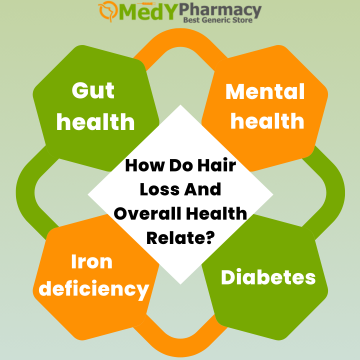
- Gut health
Your gut health, including the complex ecosystem of microorganisms in your digestive tract, can have an impact on your hair.
Poor digestive health, such as gut flora imbalances or inflammation, can impair nutrient absorption, including vitamins, minerals, and proteins, which are necessary for hair development. This might weaken hair follicles and cause excessive hair loss.
- Mental health
Stress, worry, and depression can all hurt hair health and cause hair loss. High-stress levels can interrupt the natural hair growth cycle, causing more hair to enter the resting phase and fall out prematurely. Stress can also cause illnesses like trichotillomania (hair-pulling disorder) and alopecia areata.
- Iron deficiency
Iron is an important vitamin for hair growth because it helps transport oxygen to the hair follicles. Iron deficiency, often known as anemia, can cause decreased oxygen transport to the hair follicles, resulting in weakened hair shafts and increased shedding.
- Diabetes
Diabetes-related high blood sugar levels can alter blood vessels, resulting in reduced blood flow to hair follicles and nutrient deficiencies that can weaken hair.
Diabetes can also cause hormonal abnormalities that affect the regular hair growth cycle. Diabetes management, including lifestyle modifications, medication, and frequent medical care, can assist to enhance hair health.
Long-Term Hair Care
Long-term hair care habits, in addition to diet, are essential for preventing hair loss and maintaining a healthy mane.
To detangle damp hair, use a wide-toothed comb, and handle it gently, as excessive pulling and tight hairstyles can harm your follicles. To untangle damp hair, use a wide-toothed comb and be careful.
One of the most important things you can do to avoid split ends is to keep your hair in good health.
Make sure to use the appropriate shampoo and conditioner for your hair type. Choose products that are specifically intended for your hair type, and avoid harsh chemicals and sulfates that might harm your hair.
Wear a cap or use UV-protective hair products to keep your hair from being damaged by the elements. The skin is exposed. Pollution. Harsh weather can harm your hair. Wear a hat or use UV-protective hair products to keep your hair safe from these influences.
It’s critical to control stress. Stress can lead to hair thinning. This will improve your entire health, including the condition of your hair.
Massaging your scalp can boost blood circulation and increase hair growth. To improve the experience, use essential oils such as lavender and rosemary. Finax 1 Mg stimulates hair growth and boosts confidence in men suffering from male pattern baldness.
Hair loss can be a worrying issue, but by concentrating on nutrition and long-term care, you can take preventative measures to keep your hair healthy. A well-balanced diet high in important nutrients, combined with proper hair care, can help prevent hair loss and promote hair growth.
Remember that results may take some time, so be patient and consistent. If you are having significant hair loss, contact Medypharmacy for specialized guidance and remedies.







